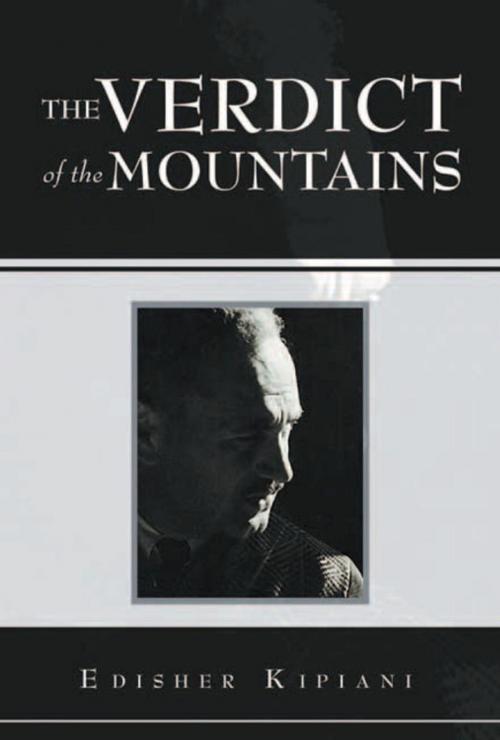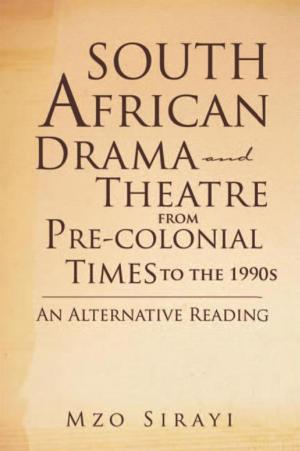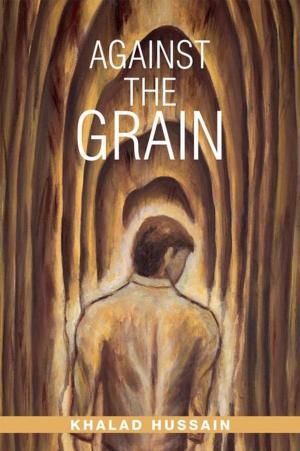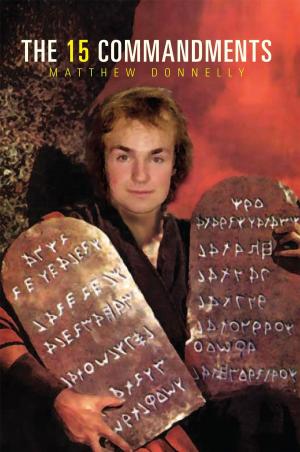| Author: | Edisher Kipiani | ISBN: | 9781469127941 |
| Publisher: | Xlibris UK | Publication: | May 24, 2012 |
| Imprint: | Xlibris UK | Language: | English |
| Author: | Edisher Kipiani |
| ISBN: | 9781469127941 |
| Publisher: | Xlibris UK |
| Publication: | May 24, 2012 |
| Imprint: | Xlibris UK |
| Language: | English |
The Oboe
Every occupation is marked with a boring monotony. With these words Dimitri would console himself every evening when he walked into the Opera House, swinging his oboe, nod to other orchestra players without a word, open the case and draw out his inseparable instrument, gently touching it with his short fingers. Then the huge chandelier would gradually fade like an old oil lamp, late arrivals would hurry to their seats as the conductor stepped onto the podium, raised his baton and the performance would begin. If it was a famous opera singer performing any particular night, Dimitri would occasionally rise during his pauses, standing on tiptoe to better see and hear the visiting singer. Otherwise the monotony was hardly ever broken.
It was the same for the last thirty-five years, ever since Dimitri first joined Tbilisi Opera House orchestra when the great Sarajishvili performed as Abesalom and Don Jose. The same over and over again. Dimitri knew all the classical operas by heart. New and interesting was hard to compose, so there was nothing to stir the old music lover like Dimitri during the premiere rehearsals.
Of course, every premiere was followed by reviews praising the director and lead singers, mentioning somewhere at the end that the orchestra sounded wonderful. That was it. Dimitri had never heard any other words of praise provided his oboe was included in this wonderful sound.
True, along with some other orchestra players, Dimitri was awarded a medal for being part of the wartime orchestras entertaining the wounded World War II soldiers. Also, together with other players, he was formally thanked for his good work, but it always was along with some other and together with other players.
Oh, no! Never had Dimitri even for a second considered himself any better than his fellow-players. He had never wished to be placed above them for his professionalism or any other reason. Never, but sometimes, on his way to the Opera or at bedtime, he would recall his young days in the village, girls, boys, the elders and his flute. How many had enjoyed his flute, how many hearts he made race faster, how many elderly people had kissed his forehead, asking the child to play more and clap for yet more. Those quickened heartbeats, those grateful kisses and encores belonged to him, were his and nobody elses!
But the city seemed to have swallowed the lad. In a way, Dimitris talent ended up diluted, lost among thousands like his or even better than his. Now it was those thousands that kisses were addressed to, others caused the listeners hearts to race, it was others who received all the clapping. True, Dimitri was part of it, but only as a small part, like a drop in a mighty waterfall.
Gradually, Dimitri got accustomed to daytime rehearsals, evening performances and getting home late at night... Daily rehearsals, evening performances...
But wait, something unusual happened that evening, returning to the nameless musician the joy and happiness he hadnt felt since his childhood.
That evening Daisi was performed. Dimitri didnt open his oboe case when he returned home from the rehearsal. He just wrapped it in a fresh newspaper and at about seven in the evening set back to the Opera.
It was some time already that he took to wrapping his oboe in a newspaper. Once a group of tipsy lads had mocked Dimitri. Saying he was as short as his instrument, they laughed, adding they wouldnt hurt him out of pity. Dimitri didnt confront them, uttered not a word, but began wrapping the oboe case in a newspaper.
Now too, he was trying to get through the crowds along the pavement. No one noticed him, no one made way for him. As if Dimitri wasnt there at all. The sea of people didnt in the least care whether he was wa
The Oboe
Every occupation is marked with a boring monotony. With these words Dimitri would console himself every evening when he walked into the Opera House, swinging his oboe, nod to other orchestra players without a word, open the case and draw out his inseparable instrument, gently touching it with his short fingers. Then the huge chandelier would gradually fade like an old oil lamp, late arrivals would hurry to their seats as the conductor stepped onto the podium, raised his baton and the performance would begin. If it was a famous opera singer performing any particular night, Dimitri would occasionally rise during his pauses, standing on tiptoe to better see and hear the visiting singer. Otherwise the monotony was hardly ever broken.
It was the same for the last thirty-five years, ever since Dimitri first joined Tbilisi Opera House orchestra when the great Sarajishvili performed as Abesalom and Don Jose. The same over and over again. Dimitri knew all the classical operas by heart. New and interesting was hard to compose, so there was nothing to stir the old music lover like Dimitri during the premiere rehearsals.
Of course, every premiere was followed by reviews praising the director and lead singers, mentioning somewhere at the end that the orchestra sounded wonderful. That was it. Dimitri had never heard any other words of praise provided his oboe was included in this wonderful sound.
True, along with some other orchestra players, Dimitri was awarded a medal for being part of the wartime orchestras entertaining the wounded World War II soldiers. Also, together with other players, he was formally thanked for his good work, but it always was along with some other and together with other players.
Oh, no! Never had Dimitri even for a second considered himself any better than his fellow-players. He had never wished to be placed above them for his professionalism or any other reason. Never, but sometimes, on his way to the Opera or at bedtime, he would recall his young days in the village, girls, boys, the elders and his flute. How many had enjoyed his flute, how many hearts he made race faster, how many elderly people had kissed his forehead, asking the child to play more and clap for yet more. Those quickened heartbeats, those grateful kisses and encores belonged to him, were his and nobody elses!
But the city seemed to have swallowed the lad. In a way, Dimitris talent ended up diluted, lost among thousands like his or even better than his. Now it was those thousands that kisses were addressed to, others caused the listeners hearts to race, it was others who received all the clapping. True, Dimitri was part of it, but only as a small part, like a drop in a mighty waterfall.
Gradually, Dimitri got accustomed to daytime rehearsals, evening performances and getting home late at night... Daily rehearsals, evening performances...
But wait, something unusual happened that evening, returning to the nameless musician the joy and happiness he hadnt felt since his childhood.
That evening Daisi was performed. Dimitri didnt open his oboe case when he returned home from the rehearsal. He just wrapped it in a fresh newspaper and at about seven in the evening set back to the Opera.
It was some time already that he took to wrapping his oboe in a newspaper. Once a group of tipsy lads had mocked Dimitri. Saying he was as short as his instrument, they laughed, adding they wouldnt hurt him out of pity. Dimitri didnt confront them, uttered not a word, but began wrapping the oboe case in a newspaper.
Now too, he was trying to get through the crowds along the pavement. No one noticed him, no one made way for him. As if Dimitri wasnt there at all. The sea of people didnt in the least care whether he was wa















